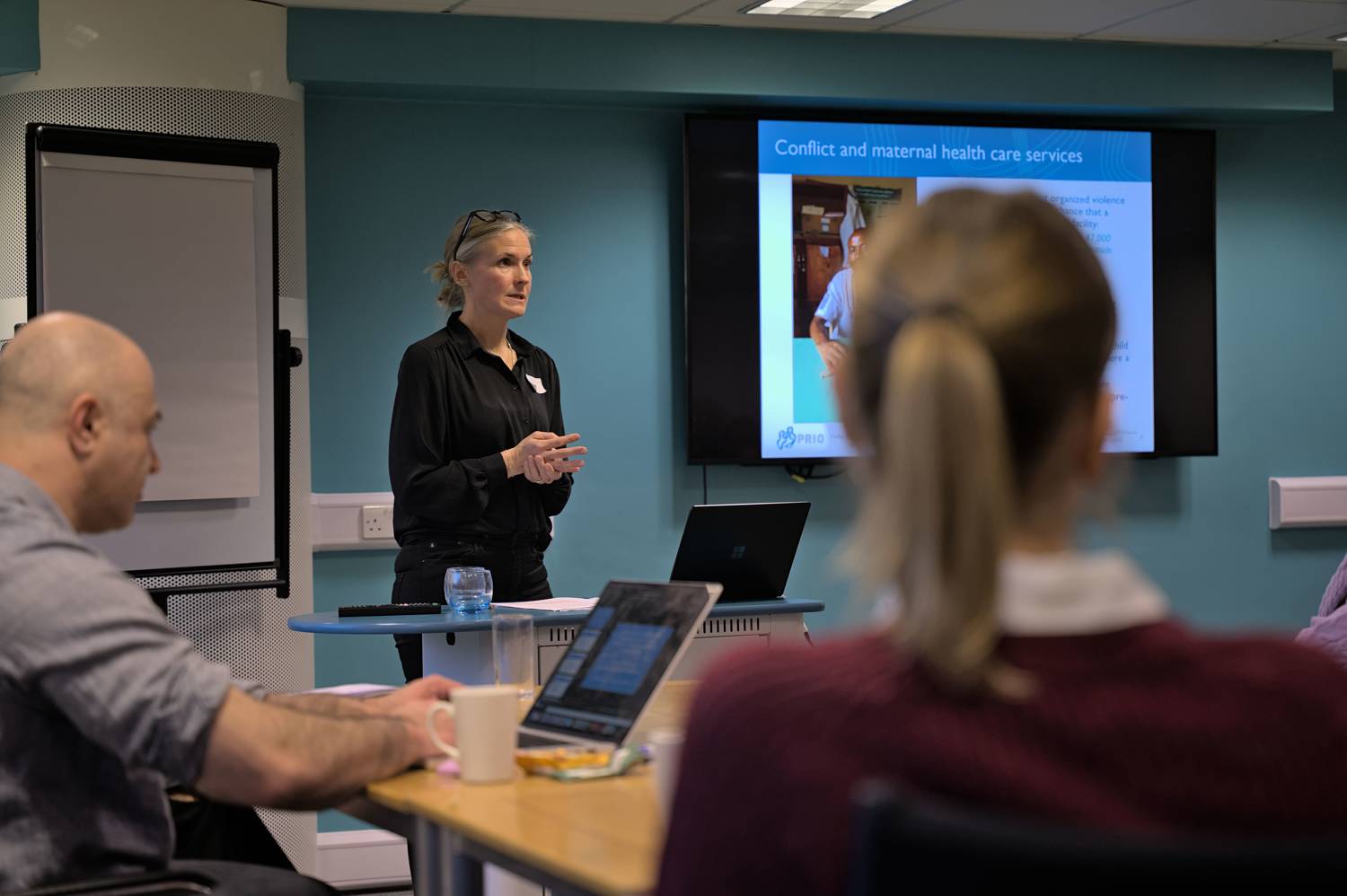
On 23 November 2022 PRIO Research Professor Gudrun Østby gave a keynote lecture at the 18th Annual Workshop of the Households in Conflict Network (HICN) at the University of Warwick, UK. The topic of the lecture was the impact of armed conflict on the access to health care services, mainly focusing on maternal and child health.
Gudrun Østby summarized the knowledge base showing that there is quite robust evidence of an isolated (mostly) negative effect of conflict when it comes to hampering the access to life-saving health services in affected areas. For example, Østby and co-authors have found that women living 50km or less from one or more recent conflict events are less likely to give birth at a medical facility. However, the relationship between conflict and health outcomes is not always linear or straightforward. When it comes to access to child immunization for example, there is evidence that minor conflicts are associated with higher full immunization rates whereas high-intensity conflicts are associated with lower full immunization rates.
Østby concluded her lecture by highlighting some remaining knowledge gaps and providing some recommendations for future research aiming to get a better understanding of how conflict impacts access to health services. First, she said, we should more systematically unpack the exposure of conflict in terms of various features such as type of conflict (state-based, non-state, one sided violence), violence intensity, duration and geographical scope. Second, existing research on conflict and health should try to better measure both the quality of health care services as well as systematic inequalities in terms of access to and use of services. Third, future studies should distinguish between objective and subjective measures of the access to, quality of and potential discrimination in terms of health care provision. Fourth, Østby argued that we need to invest more in robust methods for evaluating specific interventions and projects. The Gold standard is RCTs or field experiments. These are very resource-intensive but also what can best tell us what works on the ground in practice when it comes to improving the access to proper health care among vulnerable conflict-affected populations.
Finally, in order to fill the existing knowledge gaps we need to work across disciplines, collect new data and explore new methods, and not least collaborate with practitioners, policy-makers, experts and scholars in conflict-ridden countries, who have the best understanding of the challenges on the ground.





